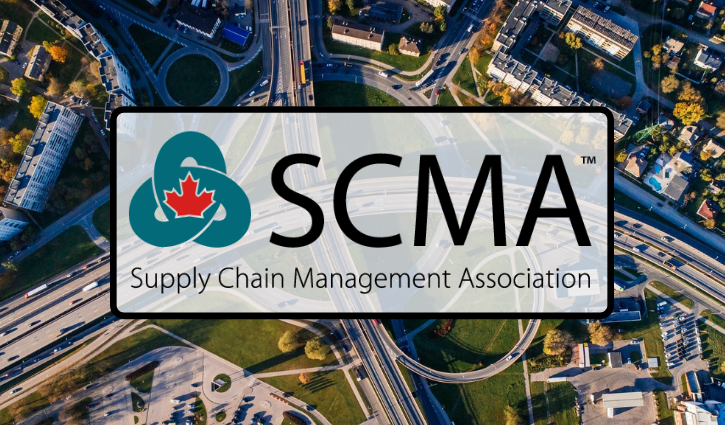“No one understands the future like a Supply Chain professional.” -Christian Buhagiar.
Supply chain management is at an inflection point. On the Argentus blog, we consider it our mission to chronicle the immense changes taking place in the field, and to pass that info along to the organizations and professionals on the front lines. As part of this mission, we take every opportunity we can to speak with the leaders and visionaries who are driving the conversation forward. So, naturally, we were thrilled with the opportunity to interview Christian Buhagiar.
Christian Buhagiar is President and CEO of the Supply Chain Management Association™ (SCMA™) – Canada’s largest association for Supply chain management professionals, with 7500 members. He also serves on the Steering Committee of SCALE.AI, Canada’s artificial intelligence supercluster dedicated to building next-generation supply chains in Canada.
His previous positions include VP, Education at the Institute of Corporate Directors; Director of Research Planning, Communications and Government Relations at York University; and Parliamentary Assistant for Health and Long-Term Care–Ontario.
We spoke about:
- Emerging technology in the field, and its impact on the talent picture;
- What Supply Chain professionals offer companies that no other employees can;
- How organizations can upskill their Supply Chain talent;
- and more!

Thanks for joining us Christian!
 1. It’s becoming clear that Supply Chain Management is at an inflection point. Technologies like end-to-end visibility, Blockchain and AI are set to enable a whole new world of strategic potential, but it’s becoming harder for organizations to find people with the right skills to match. What’s your high-level view of the Supply Chain field today – particularly from the perspective of talent – and how do you see it evolving over the next few years?
1. It’s becoming clear that Supply Chain Management is at an inflection point. Technologies like end-to-end visibility, Blockchain and AI are set to enable a whole new world of strategic potential, but it’s becoming harder for organizations to find people with the right skills to match. What’s your high-level view of the Supply Chain field today – particularly from the perspective of talent – and how do you see it evolving over the next few years?
New technologies are certainly changing work in the supply chain—in the warehouse, in manufacturing operations, for drivers and analysts, pretty much everyone—but perhaps not as widely as people think. There are a lot of supply chain employers, small and medium-sized mostly, that are not jumping in to adopt new technologies. They’re feeling overwhelmed by the options and the fear of making bad choices, so they’re waiting to make technology investments, hoping that the choices will become clear. Accelerator 2.0: A Call to Action, a report published in June 2018 by the Canadian Supply Chain Sector Council, noted this phenomenon and encouraged employers to jump in, to make investments before they’re left behind.
As technologies are adopted, however, employers definitely need people with new skills. That doesn’t necessarily mean hiring new or more people; current employees, who are already familiar with the company and its products, can be reskilled to take on new tasks. That will work in some cases and not in others.
Where technology adoption significantly changes job requirements, new employees with different skill sets will be needed. Colleges, universities and private training schools are stepping up to prepare their students to assume new responsibilities, and SCMA offers a comprehensive education leading to the Supply Chain Management Professional designation.
The challenge is that technology changes keep coming, creating new skill requirements and even new jobs. This situation makes soft skills perhaps more important than ever. Abilities to adapt to change, to solve problems, to think creatively and strategically, and to collaborate are increasingly essential for anyone working in supply chain management—and for the success of Canadian companies.
2. You’ve said that “nobody sees the future like a supply chain professional.” How do you think that Supply Chain professionals are uniquely poised to see the future, and what are they seeing that other disciplines can’t?
The advantage that supply chain professionals have is a very broad view of trends in the business world. They monitor global trade, economic conditions, emerging technologies and customer demands. They oversee, with both a microscopic and a telescopic lens, the requirements of the end-to-end supply chain, and collaborate with a range of suppliers, service providers and customers. They are thus positioned, probably better than almost anyone, to see a full picture of what’s coming and how to prepare for it.
Supply chain professionals are also leaders in the push for sustainability—in packaging, product design, warehouse operations and facilities, transportation, vendor management and more. They’re at the forefront of this future-focused work.
All together, the concepts and outlooks of many disciplines enable an expansive and forward-looking perspective; that is what sets supply chain professionals apart.
3. The SCMA is set to celebrate its 100 year anniversary at the SCMA National Conference in 2019 (May 29-31st), so congratulations! We think it’s an auspicious time to ask about the SCMA’s evolution, and where it’s going. You’ve been the SCMA President since 2017. Could you describe how you see the SCMA fitting into this changing landscape, and how it’s evolving to adapt?
We are very excited by changes taking place at SCMA. Last year, we developed a new vision and mission for the association, and new strategic objectives that are driving our activities. We have increased our focus on collaboration—with industry, other supply chain associations and education providers—on advocacy for supply chain employers and practitioners, and on enhancing our education offerings.
We have undertaken to chart the competencies required for work in the supply chain. Upon completion of that project, we will revise and enhance our education programs to ensure they meet evolving requirements.
For many years, people working in the sector have expressed a desire for more clarity around education options and designations. Sector studies done in 2005 and 2012 noted frustration caused by “fragmentation” in supply chain education. The 2005 study report (Strategic Human Resources Study of the Supply Chain Sector Final Report, published by the Canadian Supply Chain Sector Council) recommended “that associations collaborate or partner to some degree to consolidate and deliver a common foundation upon which to build a specialization.” The 2012 update report noted that “there is no clear consensus among employers regarding which particular certification or credential is most important…or the most part the certification considered important depended on the specific area of expertise.”
SCMA is now making headway toward establishing the Supply Chain Management Professional (SCMP) designation as Canada’s overarching supply chain designation. We are creating new pathways to enable practitioners to achieve the designation, including collaborating with other associations and educational institutions to provide advanced standing to their supply chain students in the SCMP program.
4. In some ways, the fundamental Supply Chain skills are becoming “table stakes” for professionals with changes in the field. Now that Supply Chain Management is becoming more of a strategic contributor in companies, organizations are looking for soft skills (presentation skills, business acumen, and “polish”) as well as specific technical competencies when hiring. It’s more important than ever for SCM professionals to continue to evolve these skills. Do you have an opinion on that? What kind of initiatives does the SCMA have to help people develop their skills later on in their careers?
I agree that soft skills are crucial in supply chain work. Lots of recent research has confirmed that, including a 2018 report from RBC called Humans Wanted. That report was about technology adoption and emphasized the need for collaboration, critical thinking and problem-solving skills. The connection of those findings to the supply chain, with its growing reliance on technology, is obvious.
The SCMA, as part of our SCMP designation program, offers workshops intended to develop soft skills in leadership and professionalism, negotiation, communication and relationship building, ethical behaviour and social responsibility.
5. Lastly, would you have any advice to companies who are hiring Supply Chain professionals and maybe struggling to fill those skill gaps?
Companies that are struggling to hire employees with the skills they need could fill those gaps by increasing the training and education they provide to current employees. SCMA and other associations, colleges and universities, training providers all offer courses in a wide variety of supply chain functions.
Employees that receive paid training become more valuable to a company for more than one reason: They obviously acquire new skills that increase their capabilities; they also feel more valued and thus more positive about their role and contributions. They become more committed to the employer. So, training and education not only add required skills to your work force; they also improve your employee retention.
We hope you’ve found this interview as enlightening as we did. A big thanks to Christian Buhagiar for taking the time to do this interview! We wish him and the SCMA all the best – and are behind them all the way. ![]()




Excellent reflection regarding Supply Chain professionals being able to look at the broad picture. With business acumen, market trends, which enable global economy of scale. Nowadays, Supply Chain is taking a relevant positions within organizations as our field has quickly evolve to be business partner rather than to be seeing as an overall service unit.